I have been asked a lot about what being an SA is really like. The world of the ‘extra’ is a fairly unique one and it really does need a certain type of person in order for it to work for the individual, agency and production.
Getting in to the industry properly is a long term thing, so if you really are considering it, ask yourself whether you have the ten qualities I’m talking about below before you sign up. Alongside each one I’ve tried to explain why it’s important to everyone involved.
Really flexible diary: If you a have a full-time, 9-5 job you’ll struggle to make it work. In fact, many agencies just won’t accept you if that is the case. Even if you haven’t got a 9-5 job, being flexible around whatever else you have in your life is really important. Because the shooting schedule for a production changes frequently as it goes along, the productions don’t know what background roles they will need until sometimes 1-2 days beforehand – quite rarely more than a week. I’ve had requests at 10pm the night before a 7am call time (the time by which you must be on-site, signed in and ready to go). In the vast majority of cases, this is not the production or agency being disorganised. They simply don’t know.
Really, really flexible diary: a day’s shooting can last long into the evening – planned or unplanned. In most cases you’ll need to be happy not booking anything for the whole day, including the evening, because even once a shooting day has started, it’s unpredictable. I’ve seen a number of SAs talking to the ADs (assistant directors) at 4-5pm that they have plans for the evening and asking if they can be let go. It really doesn’t reflect well on them and it can be fed back to the agencies, many of whom keep an eye on this stuff.
Willingness to be told what to do and to follow instructions: you will spend a lot of time being told exactly where to go and what to do. You need to have no problem at all with being directed and to listen and follow instructions directly. You might be surprised about how few staff on a production are dealing with SAs and pretty much all of those people have several jobs to do. Managing hundreds of SAs on and off set is a huge challenge and it can only work if SAs go where they’re put, do as they’re asked and don’t ask too many questions. This is almost without exception done in a really friendly way because everyone on the production is (usually) working as a massive team to get the job done well and on-time.
The right attitude to turning up on time (and turning up): if you’ve confirmed your attendance on a job, everyone is relying on you to be there – and to be there at or before the call time. Despite what a beginner might feel having seen the scale of a production, it really does matter whether or not you’re there. For most jobs you really have to be a morning person, as well as someone who looks out for any foreseeable travel problems.
A very thick skin: by its very nature, it’s a superficial industry. A lot of decisions are made on how things look. Picture this scenario. You are standing next to someone else and the production are trying to choose between you and your fellow SA for a particular role. A member of the team looks at you, then looks at the other person, then looks at you again slowly with a critical eye and says to their colleague ‘no, that won’t work’ and proceeds to whisk the other person off for hair and make up. In other words, you didn’t get the role purely based on a visual decision and that decision was made right in front of you. If you couldn’t deal with that and move on, or don’t think you can quickly learn to, you might want to re-consider whether this is right for you.
Able to cope with long periods of doing nothing: you are likely to be sitting or standing around a lot between scenes. In some cases, it might be for several hours and in extreme cases you might not even be used for the whole day. You need to cope with this.
Sociable: one of the best aspects of the work is that you get to meet some really interesting people and make some long-term connections. You also get to experience that feeling of seeing someone for the first time in ages and trying desperately to figure out which production you last worked on together. It also helps get through those long periods of doing nothing (see previous point).
Happy with an enforced digital detox: in many cases you will need to surrender all mobile phones – especially on film work. You will get a feel for the type of jobs where this will be a requirement. In other cases you won’t be allowed them on set anyway. This is to protect the production and rights surrounding it until its broadcast/release. Don’t get into this industry if you can’t or won’t be able to comply.
Positivity and professionalism: well, yes, these are good traits to have for any line of work – but very important in this industry. If you don’t see yourself as being able to stay positive through long hours, awful weather, the tedium of staying in a holding room doing nothing for long periods, being told where to go and what to do, travelling and so on, you probably won’t enjoy it. There are so many great things about being involved in this industry – and I really enjoy it – but you need to be positive through the challenges. Very few people who have been on set for 11 and a half hours in the freezing cold want to hear someone whinging about the production, how bad things are etc (even though they might be feeling it themselves) – it can bring morale down for everyone.
Bladder & willpower control: coupled with a quickly built up knack for knowing when’s best to use the facilities or smoke. It’s possible that a scene can take a couple of hours or more to film, so timing loo breaks – and cigarette ones if you’re into that sort of thing – is a bit of a skill. The production needs to know where all its SAs are when off set so they can get them quickly when needed for costume, hair and make up, checks, rehearsals or shooting. You can of course ask if it’s OK to use the facilities, but it helps to get a feel for the right times to go, so you don’t have to keep asking.
So, there you have it. A realistic, honest look at 10 essential traits of a successful SA. Hopefully you find it useful.




